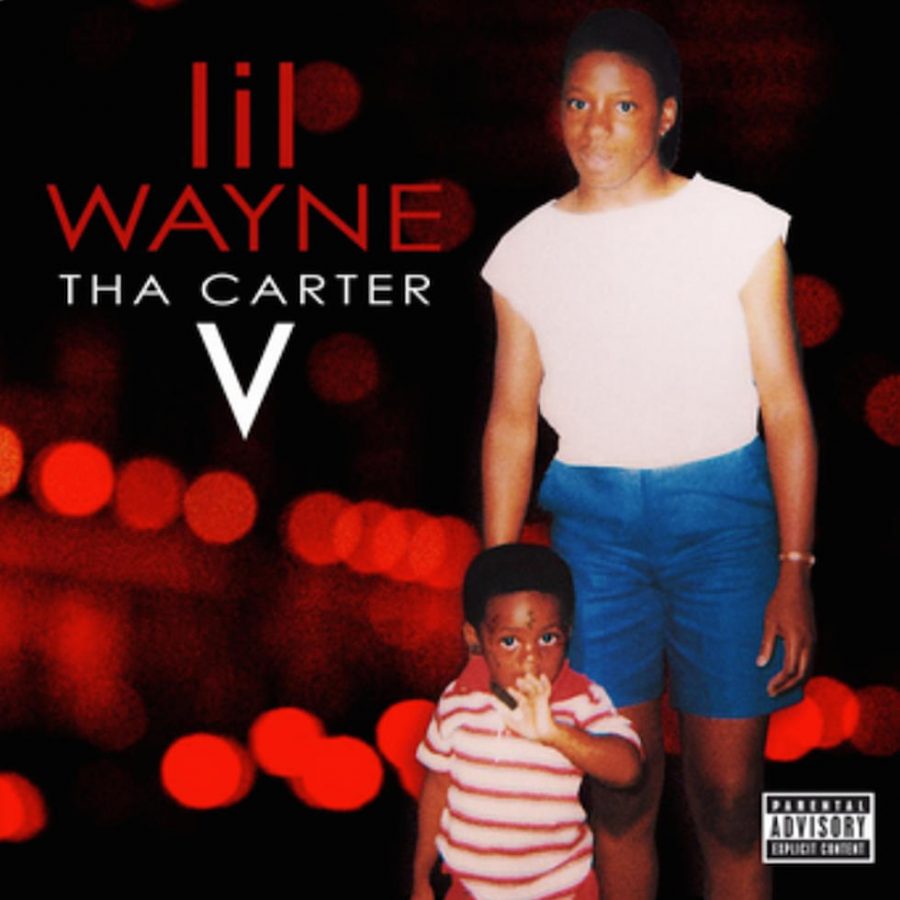‘Carter V’ fails to snatch attention from fresh ears
Oct 17, 2018
In any environment, whether suburbs or slums, victories and setbacks are a common occurrence.
However, across all aspects of societal divisions, the heartfelt words of a loving mother are the ultimate motivation to succeed.
Dwayne Michael Carter, who goes by the stage name Lil Wayne, seems to agree with this sentiment as he opens his new “Tha Carter V” album with a track of loving and congratulatory words from his own mother, Jacida Carter.
The Sept. 28 release of this album was by no means normal. It was filled with drama and tension rivaled only by the expectations Carter has to remain relevant.
I don’t keep up with the rap scene, so I was completely blind to the release of this album. I only heard about it when friends of mine raved about its upcoming release on Instagram.
I really hate rap. Not because it doesn’t have any musical value, but because it has never spoken to me. I’m an old soul who listens to rock and classical music.
I played the clarinet for eight years.
The rough texture of rap has never interested me. In this album, which was seven years in the coming, Carter opens up about some landmark events in his life that led to his rise and fall.
The first half of the album feels honest as Carter speaks introspectively about some of the tough situations in his life.
It’s no secret that Carter experienced challenges growing up in a poor neighborhood of New Orleans. The rapper has received international acclaim and his tattooed face has become recognized in American households.
“I’m a gangsta, Miss Katie,” Carter said in an interview with Katie Couric. And that he was.
It’s widely known that he was involved with illegal drugs and guns, having gone to jail for a time in 2007 on weapons charges in New York, NPR reporters Sidney Madden and Rodney Carmichael have reported.
Despite this, Carter states that he “Can’t be Broken,” in a song by the same name.
In a series of tracks after this, he begins talking about his friends and relationships.
Fame is always a hard thing to grapple with as it can divide aspects of a person’s life.
In “Famous,” which prominently features his daughter Reginae, Carter talks about how fame has affected his life.
Carter always wanted to be famous, sacrificing his relationships to advance his career, as he states in the song. In the next line, however, he says he wanted everybody’s attention because he thought his career was going to be cut short as “most people are nobody till somebody kills ’em.”
The next song, “Problems,” marks a pivotal point where the album descends into a drug-induced trip fueled by “lean,” a codeine-based mix on which Carter has denied being dependent.
The departure from honest evaluation to outright self-aggrandizement that Carter makes as the project progresses leaves a bad taste in my mouth.
I can see how Carter may have intended this to be the case in order to emphasize the degree to which fame has affected his life. But in this case, the execution is poor.
Admittedly, rap is not my music of choice. However, if Carter’s intention with “Tha Carter V” is to get people to listen to the album — this part pushed me farther away.
Carter brings his intentions back into perspective in the penultimate track “Used 2.”
Again featuring his mother, he comes out about his attempted suicide at age 12.
On that song, the rapper shines a light on his total lack of self-preservation and his participation in gang-related activities during his formative years.
He shows that he didn’t care about whether he lived or died at this point in his life, similar to how he felt during his preteen years.
Carter rounds out the album with “Let It All Work Out,” where he steps back and takes an objective look at where he stands as an artist today.
According to Carter, he has been at the top of the rap game for a long time and continues to be.
The numbers certainly back him up. Collectively, the Louisiana rapper has sold more than 15 million albums in the U.S.
Carter’s popularity continues to soar even in the face of massive legal trouble with his former label, Cash Money Records.
Pitchfork reporter Marc Hogan said Carter sued Cash Money for $51 million in 2015, claiming it refused to let him release his “Tha Carter V” album preventing him from earning a living.
Lyrically, the album is quite strong. However, I have to mark points off for the lyrically odd side step he makes in its second half.
Melodically the album falls well short of the mark Carter set in previous projects. The album lacks the creativity one would expect from an artist who claims to be at the top of the rap game.
There are no tracks that offer innovative or bold instrumentation choices, which leaves the wait, and subsequent release of “Tha Carter V,” unfulfilling.
This comes as no surprise to me as much of the rap I’ve listened to focuses on lyrics and tends to tone down a melody, so it doesn’t get in the way.


